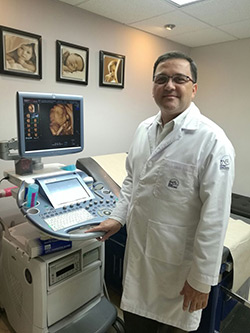
Our country is among the countries where there is little control of the Aedes aegypti mosquito, which is the transmitter of Dengue virus, Chikungunya and Zika. In this sense we should be guided in the prevention of the sting of the mosquito.
The symptoms of Zika are very nonspecific and can be confused by other diseases, among the symptoms are fever, malaise, joint pain, rash, and conjunctivitis. However, not all patients are given all the symptoms, so it is difficult to determine the exact diagnosis. There are laboratory tests that must be taken during the symptoms and others afterwards to achieve an accurate diagnosis (PCR-Zika, IgMZika).
It has been described that if the patient gave her the disease she should not get pregnant in the next two months later, it has also been reported that there is a probability of sexual transmission, so if the couple has given the disease they should not have sexual contact without protection for six months.
If the patient suspects that she gave this disease during the first trimester of pregnancy mainly, you should see your doctor to follow up on your pregnancy. This will consist of establishing if you really have or had the disease, the monitoring of fetal growth and development, and prevention.
If there is a high possibility of having suffered it, the risk of fetal involvement is important, so an ultrasonographic follow-up of the fetal anatomy should be established monthly to establish that cerebral development, cardiac mainly, is adequate.
The use of repellents is important in our environment to avoid stinging the mosquito, you can use repellents containing DEET, picaridin, IR3535, and some of lemon oil with eucalyptus and para-menthane-diol, these are those registered by the US Environmental Protection Agency (EPA).
These should be applied to the exposed skin and on the clothes, do not apply underneath it. Do not apply on cuts, eyes, mouth. Ideally, the skin should be washed after leaving the contact sites with the mosquito.
Although the virus has been detected in breast milk in small quantities, it does not affect the newborn so it can continue breastfeeding as usual.
This is a relatively new disease and we do not have much information about it at the moment. There are no vaccines. So as time goes by they will be changing the management of it. At the moment what we should do is prevention.
You should consult your doctor when presenting the suspicion of the disease.
Dr. Francisco Álvarez Polanco
Gynecologist – Maternal Fetal Medicine
Categoria: For patients